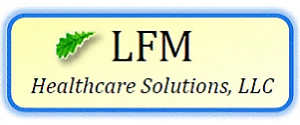March 31, 2018 (11:21 am) — Improper cleaning and sterilization of reusable ophthalmic instruments used to perform cataract and other intraocular surgeries is one of several risk factors for TASS, my new research has confirmed in a recently published article.
My research found, however, that enzymatic detergent used to clean intraocular surgical instruments have not been documented to be either the primary cause of TASS, or to be a more significant contributor to this eye disorder than several other potential risk factors, whether or not related to instrument reprocessing.
 Presenting as sporadic cases or outbreaks, TASS — or, toxic anterior segment syndrome — is an acute, sterile inflammation of the anterior segment of the eye that can result in blindness. Individual cases may be identified, but often TASS is associated with clusters of “outbreaks.”
Presenting as sporadic cases or outbreaks, TASS — or, toxic anterior segment syndrome — is an acute, sterile inflammation of the anterior segment of the eye that can result in blindness. Individual cases may be identified, but often TASS is associated with clusters of “outbreaks.”
My research was recently published in Insight, a peer-reviewed, clinical and scientific journal written by ophthalmic nurses and other ophthalmic medical personnel who are experts in their field of ophthalmology.
Other risk factors for TASS that my research identified include bacterial contamination of the water reservoirs of steam sterilizers, short-cycle sterilization, and damage to the intraocular instruments. Ophthalmic surgical instruments are critical devices requiring sterilization after each use, usually steam sterilization, to prevent infections.
Although the labeling of reusable instruments often recommends using enzymatic detergents for cleaning (prior to sterilization), some professional organizations do not endorse this instruction for the cleaning of ophthalmic surgical instruments.
CLICK HERE to download the complete Insight article about TASS.
More about the debate
Surveyors for the Centers for Medicare and Medicaid Services (CMS) routinely advise health-care facilities to adhere to the labeling of reusable medical instruments. This labeling often includes the manufacturer’s instruction to use enzymatic detergents prior to sterilization to clean the instrument, including ophthalmic instruments used to perform cataract and other intraocular surgeries.
However, a joint statement released in December 2015 by the American Society for Cataract and Refractive Surgery (ASCRS), the American Academy of Ophthalmology (AAO), and the Ophthalmic Outpatient Surgery Society (OOSS) does not endorse this cleaning recommendation, the reusable instrument’s labeling instructions notwithstanding.
Instead, this joint statement advises that “contrary to some manufacturers (instructions for use), it is our position that enzymatic detergent should not be required for intraocular instruments for several reasons.”
Quality, Safety and Case Reviews, Research Performed: Click here to read about Dr. Muscarella’s quality and safety services designed to help clients reduce the risk of healthcare-associated infections, including superbug outbreaks linked to contaminated duodenoscopes and other types of reusable medical equipment.
The American Society of Ophthalmic Registered Nurses (ASORN), a fourth organization, did not endorse this December 2015 joint statement, continuing to advise users to adhere to the surgical instruments’ labeling, which may include using an enzymatic detergent for cleaning.
Key findings
A summary of some of the key findings of my research include:
• Risk factors for TASS include, but are not limited to, the improper cleaning and sterilization of intraocular surgical instruments
• Studies reporting enzymatic detergents to be the primary cause of TASS outbreaks are lacking
• Studies reporting enzymatic detergents to be associated more strongly with TASS than several other possible risk factors, including short-cycle sterilization, are similarly lacking
More research is recommended to better quantify the relative and comparative risk of different potential contributors to TASS, and to develop and implement mitigations validated for reducing the risk of TASS.
CLICK HERE to download Insight’s complete article about TASS.
(This research was funded by the Ruhof Corporation.)
Article by: LFM Health Solutions, LLC. Lawrence F Muscarella, PhD., President Posted: March 31, 2018. LFM Healthcare Solutions, LLC. Copyright 2018. LFM Healthcare Solutions, LLC. All rights reserved.
Lawrence F Muscarella PhD is the owner of LFM Healthcare Solutions, LLC, a Pennsylvania-based quality improvement and consulting company that provides safety services for hospitals, manufacturers and the public. Email Dr. Muscarella for more details.